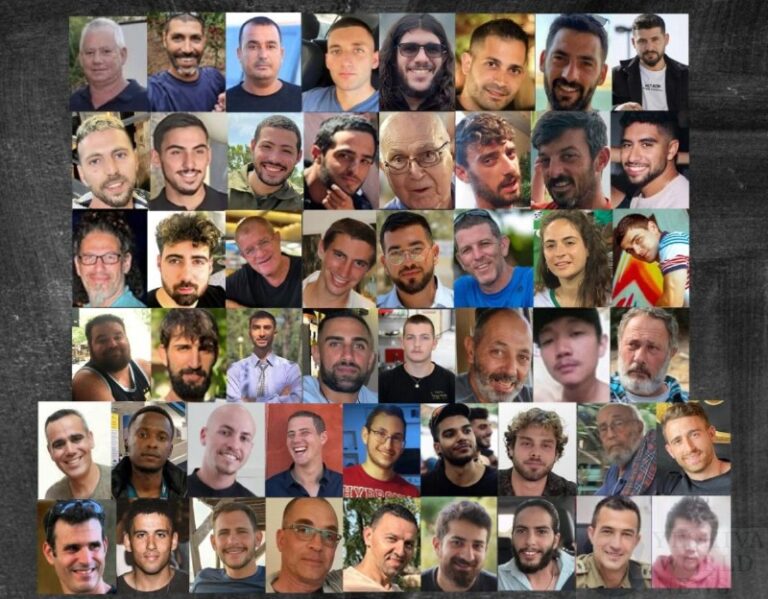 71% of chareidim with an academic degree are working as opposed to only 34% among chareidim without a degree, the Taub Center for Social Policy Studies in Israel cites in its “State of the Nation – Social, Economy & Policy 2013” report.
71% of chareidim with an academic degree are working as opposed to only 34% among chareidim without a degree, the Taub Center for Social Policy Studies in Israel cites in its “State of the Nation – Social, Economy & Policy 2013” report.
The gap is also seen regarding the salary earned by chareidim in the workplace with the average chareidi worker with a degree earning 13,565 NIS monthly as compared to 7,580 NIS for workers without an academic degree.
The report adds that in 80% of chareidi couples, both the husband and wife do not have an academic degree. In only 5% of chareidi households both the husband and wife hold academic degrees. In addition, about half of the chareidi men only completed an elementary school education or less, citing that a decade ago, this could be said about 30% of the regular Israeli population.
Among chareidi males 75-years-old and above, only 56% studied in a yeshiva gedola, while among chareidi men aged 25-34, that figure stands at 90%.
The Taub report concludes that in the chareidi community, the young generation is less educated [in secular subjects] while the trend in the international community is just the opposite. Hence, younger chareidim have less of an ability to enter the workplace.
Half of the working chareidi women have an academic degree as opposed to 22% in 1980. Salaries for chareidi women with academic degrees were significantly higher too, from 2,582 NIS to 8,844 NIS in 2011.
Dire Situation for Many Israelis
The report addresses other segments of society and highlights some most distressing realities. The report states 20% of Israelis forgo food because of economic issues, and 13% do not use electric appliances or the phone because they do not have the funds.
When looking at the segment of the population requiring medical care, as many as 40% do not go for dental services because they cannot afford to pay for it. 15% of Israelis do not fill their prescriptions due to a lack of funds.
The Central Bureau of Statistics reported in the beginning of November 2013 that the average monthly salary is 6,541 NIS.
(YWN – Israel Desk, Jerusalem)











6 Responses
1. Israel has a large “grey” economy, and anyone who is subject to conscription will be working “off the books”. In having such a large “unofficial” sector, Israel is actually quite typical of most third world countries – which for the most part it is.
2. “Working” should be defined such that if someone is receiving money to learn, i.e., rather than pay tuition or other fees, the person receives money instead, they are considered to be “working” – just as is the case if someone was teaching or employed as a researcher or fellow in a university.
3. Most hareidim with academic degrees have no choice but to work “on the books” since that’s the nature of their professions, and if the person was raised in Israel, they can only get a degree after finishing (or being exempted from) military service.
4. A statistician has to be attunded to the culture of the group studying. Using an American paradigm to study Israeli hareidim results in statistics that are totally meaningless.
to akuperma – item #2. there is a huge difference between learning for oneself and being paid for it and teaching.
to rkefrat: For some inane reason, the Israelis consider people who are being paid in kollel, or who are “members” of a yeshiva and drawing a salary since they are teaching and tutoring, to be “unemployed.” If someone in a university were being paid to study, let’s say, talmud or Jewish history, they consider that person to be “employed.”
Because of this, their economic estimates of “working” and “not working” are statistically meaningless. Part of the reason they do this is that if they say they are “employed” the Israelis would feel a need to conscript them, so classifying these people as being “full time scholars” rather than people employed in Torah institutions serves a political purpose.
This statistic strikes me as backward-facing: if someone wants to work, he or she are likely to get a degree. Saying that people with degrees are more likely to work makes it sound like half the average charedim have a degree and those are more likely to work. Its the other way around…
The statistic listed about only 56% of 75 year olds and above learned in a yeshiva gedolah is quite misleading. The reason for that was that anyone that is over 75 right now was lucky to attend any yeshiva. They were kids during the war.
@akuperma:
What you call a salary is not enough to support a single guy for a week let alone a family for a month, it’s much more like a student who gets a grant, is a student living of grant money considered employed? Unless they get a job to fill in the financial gaps they are not.
Sitting and learning is not a job, not according to Halacha and not according to Israelis.
For a Kollel with a stipend that one can actually live of an argument can be made that it may be considered a “job”.
@voosmachtsee:
Before the war the percentage of Boys/Young men going to yeshiva was also very low, not because of the Nazis y”s but because going to yeshiva was only for the best and brightest, most others had to make due with the town melamed until bar mitzwa and then go work.